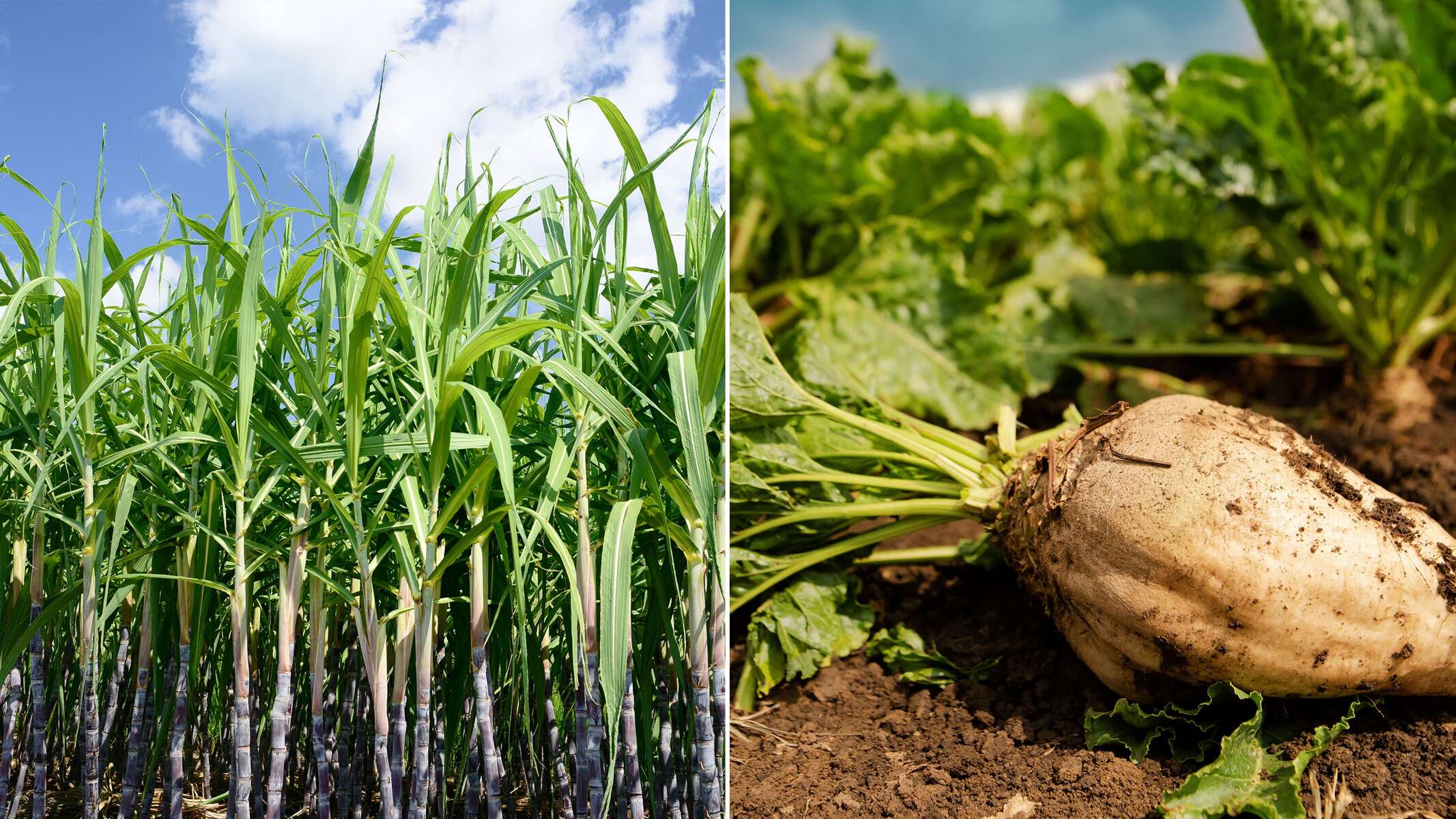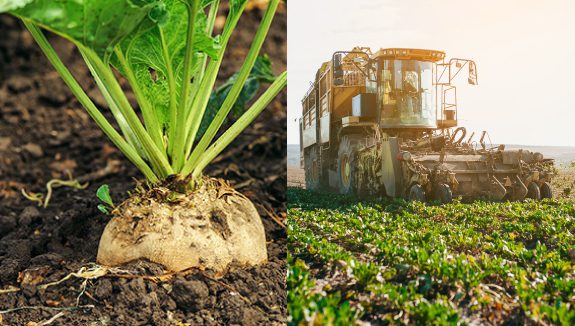Sugar beet vs sugar cane: Top FAQs
Wiki Article
The Great Discussion: Sugar Beet Vs Sugar Cane - Which Is the Superior Selection for Sugar?
The dispute over sugar beet versus sugar cane as the favored sweetener involves several crucial variables. Each deals distinctive benefits and difficulties relating to production, flavor, and wellness effects. While sugar beet might appeal to those focusing on sustainability, sugar cane has its very own cultural and culinary significance. As customers end up being much more mindful of their selections, the concern stays: which sugar genuinely sticks out in today's market?The Origins of Sugar Beet and Sugar Cane
Although sugar cane has been cultivated for hundreds of years, primarily in exotic areas, sugar beet emerged as a substantial choice in cooler climates throughout the 18th century. Sugar cane, indigenous to Southeast Asia, was first domesticated around 8000 BCE and spread out internationally through profession and exploration. Its high sucrose content made it a beneficial plant, leading to considerable ranches in areas like the Caribbean and Brazil.On the other hand, sugar beet was first grown in the Mediterranean around the 18th century, specifically gaining grip in Europe as a reaction to sugar cane lacks. The plant thrives in pleasant climates, making it appropriate for areas with colder weather condition. The discovery that sugar can be extracted from beet roots changed sweetener production, specifically during the Napoleonic Battles when profession restrictions restricted cane sugar accessibility. The rise of sugar beet farming marked a zero hour in the background of sweeteners, offering a neighborhood source for numerous nations.
Manufacturing Procedures: From Field to Sugar
The production procedures of sugar beet and sugar cane disclose significant differences in growing methods, gathering methods, and refinement stages. Comprehending these subtleties is necessary for appreciating just how each crop adds to the general sugar market. This contrast highlights the unique features and challenges connected with both sources of sweetness.
Farming Methods Comparison
Growing techniques for sugar beet and sugar cane reveal unique methods that affect their manufacturing procedures, from field preparation to final sweetener extraction. Sugar beet growing generally includes raking and painful to produce a fine seedbed, adhered to by seeding in rows to promote development. This plant take advantage of cooler environments and is usually grown in spring. In comparison, sugar cane is typically grown in furrows with pre-sprouted cane items, calling for a cozy, exotic environment for ideal development. Cane areas are usually outlined to take care of water effectively, provided its need for significant watering. Both plants are handled with particular fertilization and pest control techniques tailored to their growth atmospheres, impacting return high quality and effectiveness in sugar extraction.
Gathering Methods Explained
Effective harvesting methods for sugar beet and sugar cane play a crucial duty in assuring maximum return and top quality of the end product. Sugar beet harvesting commonly employs mechanized origin farmers, which efficiently uproot the beetroots from the soil and different them from the vegetation. This technique decreases damages to the beetroots and minimizes labor expenses. On the other hand, sugar cane harvesting may use either manual work or machinery, relying on the region and scale of manufacturing. Mechanical harvesters cut the cane at the base and often remove the fallen leaves, enhancing the process for bigger fields. Both techniques need mindful timing to assure the crops are gathered at peak sweet taste, influencing the top quality of the final sugar product.Refinement Process Distinctions
While both sugar beet and sugar cane undertake rigorous refinement procedures to transform their raw types into usable sugar, the techniques employed vary considerably. Sugar beet improvement begins with cleaning and cutting the beets into thin cossettes, adhered to by diffusion, where hot water removes sucrose. The resulting juice is then purified, concentrated, and taken shape. On the other hand, sugar cane handling entails crushing the stalks to remove juice, which is after that made clear making use of lime and heat to get rid of impurities. The cane juice is vaporized to form syrup prior to condensation. Eventually, while both processes intend to create white sugar, the distinct methods highlight the special attributes of each resource and their effects for flavor and pureness in the last item.Nutritional Profiles: What remains in Your Sugar?
The nutritional profiles of sugar beet and sugar cane present distinct distinctions worth checking out. This comparison consists of aspects such as calorie web content, mineral and vitamin visibility, and variants in glycemic index. Comprehending these aspects can supply understandings into exactly how each sweetener might impact general wellness.Calorie Content Contrast
Comprehending the calorie web content of sugar beet and sugar cane is necessary for those mindful of their nutritional choices. Both sugar largely contain sucrose, adding a comparable caloric value. Usually, sugar beet consists of around 387 calories per 100 grams, while sugar cane has concerning 390 calories per the exact same quantity. The slight distinction in calorie content may not substantially influence most diet regimens; nevertheless, it is impressive for those carefully checking their caloric consumption. In addition, both sugar sources supply energy but do not have crucial nutrients, making them mostly resources of empty calories. As a result, people seeking healthier alternatives may wish to take right into account these elements when picking between sugar beet and sugar cane as their liked sugar.
Mineral and Vitamin Web Content
Calorie material gives only a part of the picture when reviewing sugar beet and sugar cane. Both resources of sugar differ significantly in their mineral and vitamin accounts. Sugar beets are remarkably abundant in important nutrients, consisting of potassium, magnesium, and iron. They additionally consist of tiny quantities of vitamins such as B6 and folate, adding to their nutritional value. On the other hand, sugar cane offers a various collection of advantages, consisting of calcium, phosphorus, and traces of B vitamins. While neither option is a significant resource of vitamins and minerals contrasted to entire foods, sugar beets might have a minor side as a result of their greater mineral web content. Inevitably, customers seeking dietary take advantage of sweeteners should take into consideration these differences in accounts.Glycemic Index Differences
Glycemic index plays an essential duty in examining exactly how different sweeteners affect blood sugar level degrees. Sugar beet and sugar cane display remarkable differences in their glycemic responses. Typically, sugar beet has a reduced glycemic index compared to sugar cane, resulting in a slower and steadier rise in blood sugar degrees after intake. This characteristic might make sugar beet a more suitable option for individuals handling diabetes or those seeking to keep steady power degrees. In comparison, sugar cane has a tendency to create a more fast spike in blood sugar, which can lead to quicker power crashes. Comprehending these distinctions is considerable for consumers intending to make enlightened dietary options pertaining to sugar and their influence on general wellness.Environmental Impact: Sustainability Considerations
While both sugar beet and sugar cane are crucial resources of sugar, their ecological influences and sustainability considerations differ significantly. Sugar beets, mainly expanded in temperate regions, typically call for less water and can be cultivated in varied climates. They right here additionally gain from plant rotation practices, which improve dirt wellness and reduce the need for synthetic fertilizers. Intensive farming of sugar beets can lead to soil depletion and chemical use.In comparison, sugar cane thrives in tropical environments and frequently demands significant water resources for irrigation (Sugar beet vs sugar cane). The monoculture nature of sugar cane farming can aggravate dirt erosion and biodiversity loss. Furthermore, the burning of cane fields prior to harvest launches carbon emissions and adds to air contamination. Both plants encounter obstacles pertaining to environment change, yet their varying growing techniques profoundly influence their overall sustainability accounts. Consequently, the selection in between sugar beet and sugar cane entails considering these environmental impacts very carefully
Taste and Culinary Makes Use Of: Which Sweetener Reigns Supreme?
The option in between sugar beet and sugar cane extends beyond environmental factors to consider to include taste and culinary applications. Sugar beet, often regarded as having a somewhat different taste account, tends to be less sweet than sugar cane. This refined distinction can affect its usage in dishes, especially in baked goods where a neutral sweetness is wanted.On the other hand, sugar cane is commemorated for its distinct, abundant, and extra complicated flavor, making it a favored choice for drinks and desserts - Sugar beet vs sugar cane. Its natural molasses content can boost the deepness of flavors in numerous dishes
In cooking, sugar cane's versatility beams through in sauces, lusters, and confections, while sugar beet is commonly found in refined foods and sugar like granulated sugar. Ultimately, the decision in between both sweeteners typically depends upon private preference choices and details culinary applications, with each offering unique benefits in the cooking area.
Health Implications: Sugar Beet Vs Sugar Cane
Both sugar beet and sugar cane have distinctive wellness ramifications that can affect customer choices. Sugar beet vs sugar cane. Sugar beet is usually related to for its higher fiber content, which can aid digestive system health and wellness. In addition, it contains specific antioxidants that might contribute to total well-being. On the other hand, sugar cane is abundant in nutrients such as calcium, potassium, and magnesium, supplying some mineral advantagesHowever, both sources mostly include sucrose, which can bring about comparable wellness worries when eaten excessively, such as obesity, diabetic issues, and heart disease. The handling methods likewise differ; sugar beet is typically refined a lot more intensively, potentially resulting in a loss of particular nutrients. Consumers concerned concerning additives may like sugar cane, as it usually undergoes much less handling. Eventually, comprehending these wellness effects can direct people toward making notified choices regarding their sugar selections.
Customer Preferences: Fads and Insights
Consumer preferences for sugar have actually developed substantially in current years, affected by health and wellness fads, ecological problems, and nutritional options. Boosted awareness of the negative health and wellness effects linked with excessive sugar usage has led lots of customers to look for choices. This change has actually prompted a growing rate of interest in natural sweeteners, with sugar beet and sugar cane being at the leading edge of discussions.Research study shows that consumers are progressively preferring sugar beet because of its perceived ecological advantages, as it is usually expanded closer to processing plants, minimizing transportation emissions. Conversely, sugar cane is frequently connected with tropical regions and might carry perceptions of sustainability obstacles.

Regularly Asked Inquiries
How Do Sugar Beet and Sugar Cane Affect Blood Sugar Level Levels?
Sugar beet and sugar cane both consist of sucrose, which can raise blood glucose levels. The impact mostly depends on private metabolic process and usage amounts, however both resources add likewise to blood sugar feedbacks most of the times.Which Sugar Is Much Better for Baking and Cooking?
When reviewing sweeteners for baking and food preparation, one have to consider structure, flavor, and visite site moisture retention. Sugar beet and sugar cane both offer special qualities, with sugar cane usually favored for its richer taste profile in cooking applications.Can Sugar Beet or Cane Be Used in Vegan Diets?
Both see it here sugar beet and sugar cane can be utilized in vegan diet regimens. They are plant-derived sugar, making them ideal for people seeking vegan-friendly alternatives without pet items, making certain honest options in their culinary methods.What Are the Historic Uses of Sugar Beet and Cane?
Historically, sugar beet and cane offered as vital resources of sweet taste, with cane cultivated in tropical regions and beet in temperate zones. Both have been important to different cultures, economies, and cooking practices throughout history.Exist Any Alternatives to Sugar Beet and Cane?
Alternatives to sugar beet and cane consist of agave nectar, honey, maple syrup, and fabricated sugar like aspartame and sucralose. These replacements supply differing tastes and health advantages, appealing to diverse nutritional choices and constraints.Report this wiki page